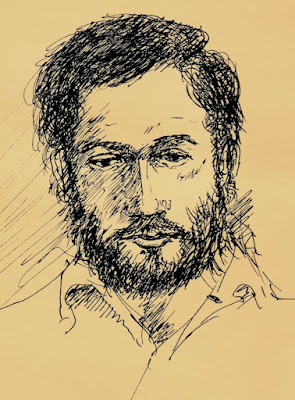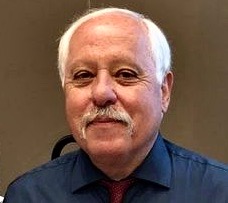When our beloved brother and uncle, Robert Cargni-Mitchell, vanished about this time last year, the family was naturally concerned. A film archivist in Philadelphia, he had also been primary caregiver for wife, Elaine, for two decades. Having informed his family that he had contracted COVID-19, we assumed he had checked himself into a local hospital. Missing for 10 days, Robert was eventually found dead at home.
His passing initiated a yearlong effort to reclaim his belongings from a storage locker located in the Pearl District in downtown Portland. He had maintained the locker for nearly 40 years as he continued to live and work in Philadelphia. The circuitous journey in reclaiming his belongings resembled a trip down the rabbit hole in Alice's Adventures in Wonderland, the children's novel written by Lewis Carroll.
My sister managed the project at first, keeping up on Robert's monthly payment schedule while she worked with management of the storage facility, along with the State of Pennsylvania and the State of Oregon, in obtaining legal access and rights to the contents of the locker. After six months of getting the runaround in our attempt to legally obtain rights to our brother's belongings, it was time to "get creative."
After halting payments on the locker, I assumed management of project and began negotiating with the storage facility. Informed that, per Oregon law, delinquent storage accounts require monthly attempts to "contact the owner" for 120 days before taking any action, I explained to the manager that "the owner is deceased." He nonetheless replied they must follow due process before submitting the contents to auction.
For the next four months, we played a "cat and mouse" game of pursuit and evasion with management and employees of the storage facility. I explained that, as immediate family, we should have sole access to the contents of the locker. Meanwhile, I boned up on auction websites and bookmarked the specific site used by the storage facility. I also assured management in no uncertain terms: "I will win the bid."
Researching the auction site for similarly-sized storage units, it appeared most successful bids were about $50. "This might be cheaper than I thought," I speculated. As the auction date approached, I prepared my strategy. It was simple, really. Win at all costs and monitor the website relentlessly as the deadline ticked down to 0:00. The day before the auction, the storage facility called with a surprising proposal.
"Turns out we can't auction your brother's belongings because it's all personal documents," said the manager. "By law, we can only auction consumer goods, not personal stuff. Our regional manager recalls your brother as a well respected film archivist in Philadelphia and theater manager in Portland. We will allow you to clean out the locker for $400 once you submit the required legal paperwork." "It's a deal," I replied.
Sending the required documents, including a death certificate and an affidavit of small estate, the foot-dragging continued. It was clear that communication amongst employees was a not a strong suit of this particular storage facility, and more vaudevillian antics and shenanigans ensued before they finally relented. "You have until the end of April to clean out your brother's locker," the manager noted.
I took three trips to Portland and back with our SUV and utility trailer, and we packed both the car and the trailer full to the gills. Contents included, among other things, thousands of books, hundreds of record albums and comic books, dozens of movie posters, and a plethora of photos and correspondence. "Curiouser and curiouser," thought Alice. "And what is the use of a book without pictures or conversations."
Along with signed biographies of Frank Zappa and R. Crumb and other oddities and curiosities, a key find was this illustration of the artist as a young man.Robert Emile Cargni-Mitchell, beloved brother and uncle, was indeed a renaissance man.




